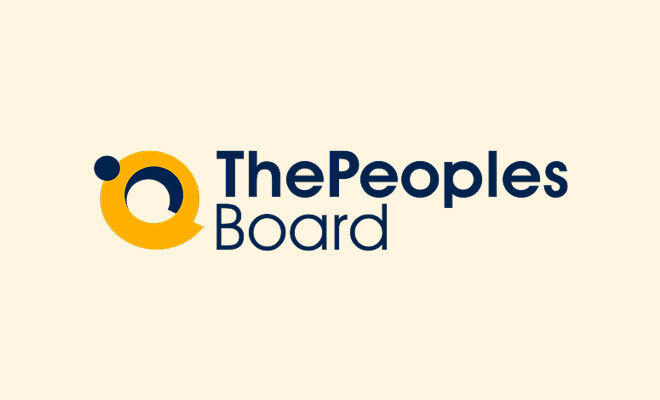Unlike traditional HR roles, which primarily focus on administration and compliance, HR Business Partners (HRBPs) align closely with business leaders to drive strategic goals, improve employee engagement, and shape the workforce to meet future demands.
Whether navigating the complexities of a growing startup ecosystem or addressing workforce challenges in large multinationals, HRBPs are at the forefront of driving business success through people-centric strategies.
This article explores the key responsibilities of an HRBP, their importance in organizations, and how aspiring professionals can prepare for this exciting career path.
What is an HR Business Partner?
An HR Business Partner is a strategic advisor who works closely with senior management to align human resources practices with organizational goals. Instead of managing routine HR operations, HRBPs focus on:
- Workforce planning and talent management.
- Advising leaders on employee engagement and retention strategies.
- Identifying and resolving people-related challenges to improve business outcomes.
- Driving organizational change and fostering a culture of continuous improvement.
For example, in an Indian IT services firm, an HRBP may work alongside project managers to address issues such as high attrition rates, skill gaps, and employee burnout, ensuring that the workforce remains productive and motivated.
Key Responsibilities of an HRBP
The role of an HRBP is multidimensional, combining HR expertise with a deep understanding of business operations. Here are some core responsibilities:
Strategic Workforce Planning
HRBPs analyze workforce data and collaborate with leadership to predict future staffing needs, identify skills gaps, and create talent acquisition strategies. In India, where industries often face talent shortages in specialized areas like AI and data analytics, this planning is crucial.
Employee Engagement and Retention
Indian companies often face challenges like employee dissatisfaction and turnover. HRBPs design engagement initiatives, recognition programs, and career development plans to create a positive work environment.
Change Management
With Indian organizations increasingly embracing digital transformation and hybrid work models, HRBPs play a key role in ensuring smooth transitions. They help employees adapt to new technologies, processes, and work cultures.
Performance and Leadership Development
HRBPs coach leaders on how to build high-performing teams and create a culture of accountability. They also facilitate leadership training programs tailored to Indian business contexts.
Diversity, Equity, and Inclusion (DEI)
In the Indian workplace, DEI initiatives are gaining traction. HRBPs work on strategies to promote gender diversity, inclusion of differently-abled employees, and cultural sensitivity across teams.
Skills Required to Become an HR Business Partner
To excel as an HRBP, professionals need to combine technical HR knowledge with business acumen and interpersonal skills.
Business Acumen
Understanding the organization’s financial goals, industry trends, and competitive landscape is essential for aligning HR strategies with business objectives.
Analytical Thinking
HRBPs use data to identify workforce trends, measure the impact of HR initiatives, and make informed decisions. Tools like Microsoft Excel, Power BI, and HR analytics platforms are valuable.
Strong Communication Skills
Whether presenting a strategy to leadership or addressing employee concerns, HRBPs must communicate effectively to build trust and influence decisions.
Problem-Solving Ability
HRBPs often deal with complex challenges, such as resolving conflicts between teams or addressing declining productivity. A solution-oriented mindset is critical.
Emotional Intelligence
HRBPs must empathize with employees while balancing the organization’s needs. Emotional intelligence helps foster positive relationships and manage sensitive situations.
How to Become an HR Business Partner in India
Educational Background
Most HRBPs hold a degree in HR, business administration, or psychology. Pursuing an MBA in HR from top institutes like XLRI, TISS, or IIMs can provide a strong foundation in India.
Gain Relevant Experience
Start in traditional HR roles such as recruitment, payroll, or employee relations to build a solid understanding of HR processes. Experience in strategic HR projects, such as organizational development or talent management, is particularly valuable.
Develop Business Knowledge
Working closely with other departments can help you expand your understanding of business operations. Online business strategy, finance, or analytics courses from platforms like Coursera or EdX can also help.
Get Certified
Professional certifications like SHRM-CP, HRCI’s SPHR, or CIPD can enhance your credibility. In India, certifications from NIPM (National Institute of Personnel Management) are also recognized.
Build Leadership Skills
HRBPs often work with senior leaders, so developing leadership and negotiation skills is crucial. Participating in leadership workshops or joining HR communities to network can be beneficial.
Stay Updated on Trends
Indian HR professionals must stay informed about changes in labor laws, technology adoption, and workplace trends. Subscribing to HR magazines or joining LinkedIn groups like “HR Shapers” can provide valuable insights.
Challenges Faced by HR Business Partners in India
Balancing Strategy and Operations
In many Indian companies, HRBPs are expected to manage strategic and operational tasks, which can be overwhelming.
Resistance to Change
Driving cultural or organizational change can be challenging, especially in traditional setups where employees hesitate to adopt new practices.
Addressing Skill Gaps
With the rise of emerging industries like fintech and e-commerce, finding and retaining skilled talent remains challenging for HRBPs.
Why the HRBP Role is Rewarding
The HRBP role is ideal for professionals who want to make a tangible impact on business success while championing employee well-being. In India, where industries are growing rapidly, HRBPs have the opportunity to shape the future of work.
Depending on their expertise and contributions, HRBPs often advance to senior leadership roles, such as HR Director, CHRO, or even COO.
Conclusion
The role of an HR Business Partner is a blend of strategy, leadership, and empathy. For Indian professionals looking to step into this role, the journey involves continuous learning, collaboration, and a deep understanding of people and business.
As organizations across India increasingly recognize the value of HRBPs, this career path promises challenges and immense growth opportunities. Whether starting your career in HR or looking to transition into a more strategic role, becoming an HR Business Partner can be a fulfilling and impactful choice.




